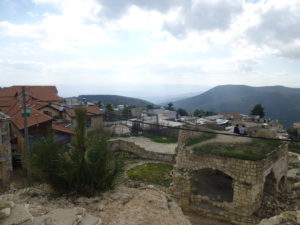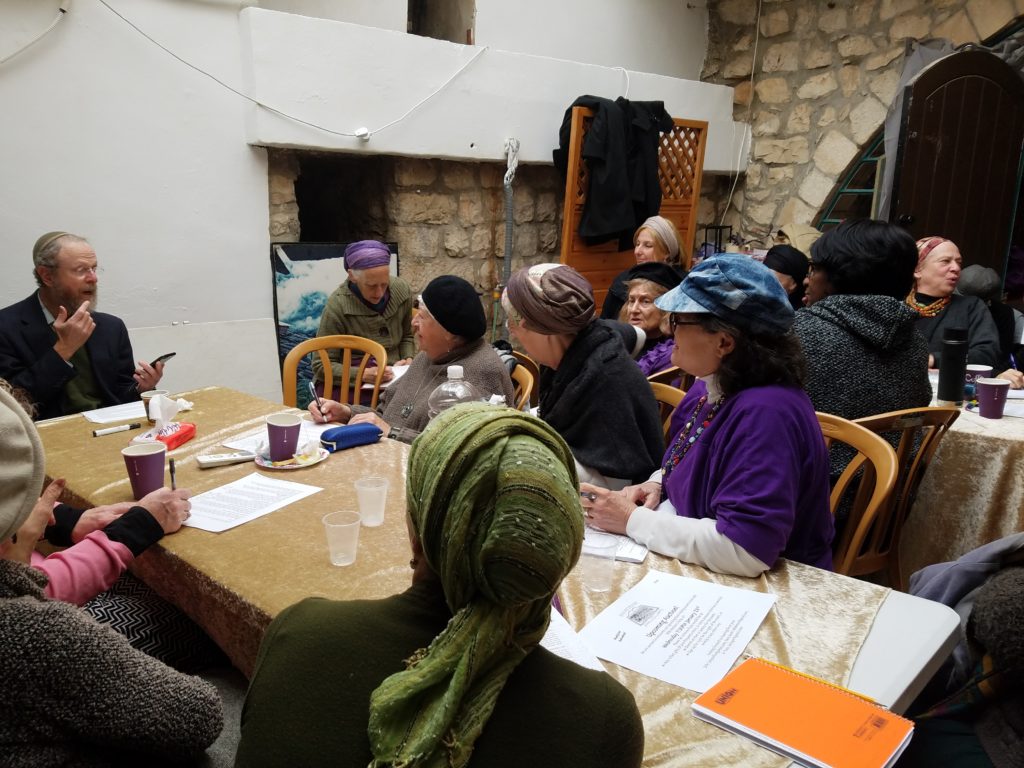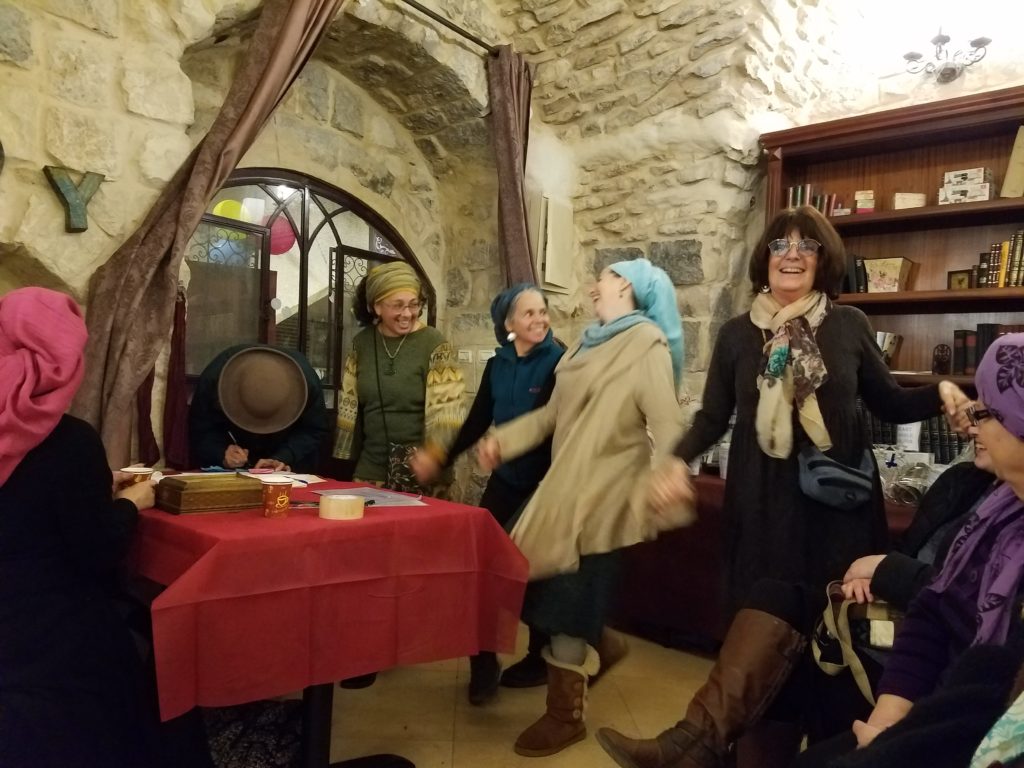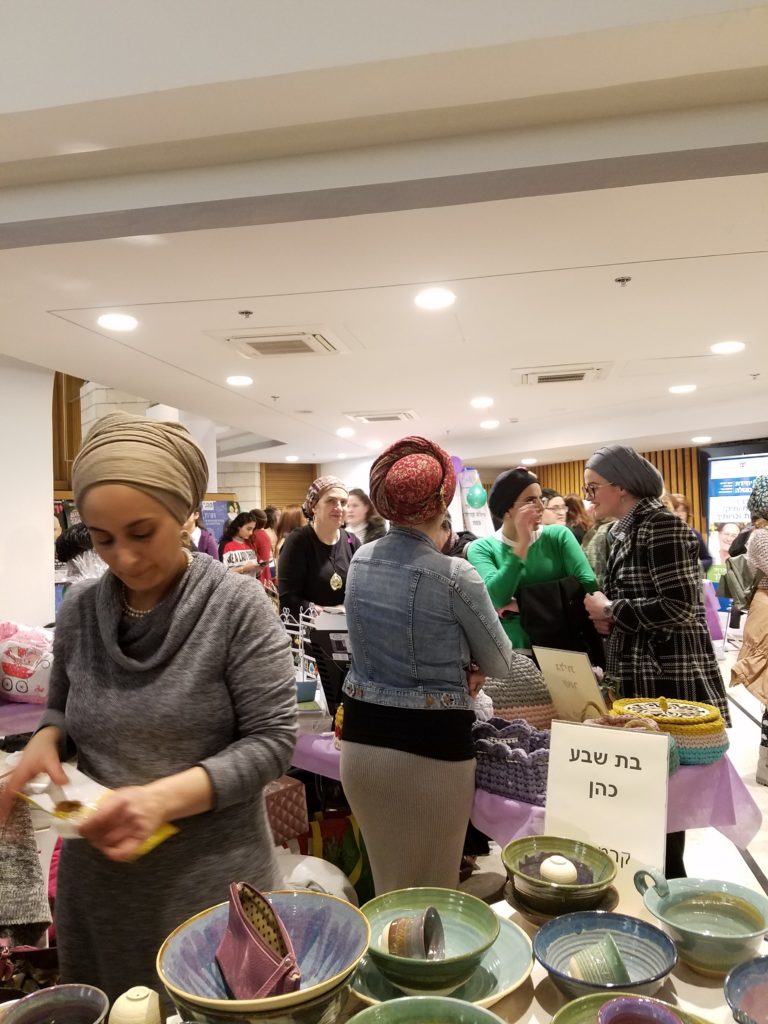
There is a tradition that when second Jewish Temple was destroyed, the Shechina (divine presence, also referred to as the feminine aspect of the Divine), retreated to Tzfat, and is waiting to be redeemed there. When women connect with each other in this city in the context of Torah and Mitzvot, it awakens the Shechina, thus accelerating Messianic process of rectifying the world.
There is a detectable feminine aspect to Tzfat, with its landscape of soft contours of hills extending as far as one can see, reminiscent of the waves of the ocean, the curving streets, circling the mountain on which the city is built. Another feminine aspect of Tzfat is its hiddenness. Often an unremarkable looking door opens to the beautiful arched room or an exotic garden. Women complete the picture of this city, many of them dressed in flowing dresses and colorful scarfs, so fitting in Tzfat. The young religious women’s aspiration is to have a large family, and there are many young women with numerous kids. We enjoy seeing them and living in a place where life is of a highest value.

There is a large community of “Anglo” women: English speakers from US, Europe, Canada, South Africa. Many of these women regularly get together to learn Torah in “Bas Medrash” – (basmedrash.org). There are different classes and modes of learning: classes by excellent teachers, learning together original Hebrew texts in smaller groups, discussion sessions etc. The learning always begins with a different woman giving a talk on the subject of her choice, and it is never only intellectual, but sharing something very important to each one, and often the speaker is so moved, that she starts crying, and the listeners respond in kind, and the tissues are passed around. Of course there is also a lot of laughter, and during text learning – sometimes there are loud arguments about meaning of texts, as in any normal yeshiva with interested and involved students. Everybody is passionate about Torah learning, and it is always a moving and rich experience. In addition to learning there is an excellent breakfast, prepared by volunteers who come early to prepare food and set the tables.

Rosh Chodesh is celebrated with women singing together, led by talented musicians among us. There is an atmosphere of sharing and mutual support that extends beyond the place of learning, and is valuable in times of joy as well as sadness. Recently there was a funeral in Tzfat of the husband of one of the women in a group. This is a family that has been spending a part of the year in Tzfat, and part in the US due to the husband’s work. The day of the funeral was a harshest storm of the season, but most of the women from the Bas Medrash group came to participate and share. And of course many happy occasions are celebrated together as well.

Recently there was an event that brought together women of Tzfat and its surrounding communities even in larger numbers: “Kululan” organized by Tzfat municipality. The event has been modeled after a successful Israeli initiative of several years ago called “Kululam” , which is a combination of Hebrew words for kulam (everyone), kol (voice) and olam (world.) The purpose is to bring together people without prior singing experience, divide them into 2 or 3 voices, and teach them a new song with harmonies, producing at the end a complete and harmonious musical creation.
The difference of a Tzfat event was that it was women-only, and it brought together close to 800 hundred Jewish girls and women of all ages, religious and not religious. The song we learned was “Matzil Oti Kol Yom” – by Ishai Ribo – a song about expectation of an approaching redemption and the coming of Mashiach, which at the end of the event was sung together joyfully and in harmony by hundreds of women voices, awakening Shechina, and affirming hope of a better world.
